Disabled divers can pursue three key certification paths: HSA’s Multi-Level system with four tiers matched to different abilities, PADI’s Adaptive Techniques program focusing on support diver training, and therapeutic diving programs backed by Johns Hopkins research showing benefits for veterans with spinal cord injuries. Each path prioritizes safety through buddy systems and modified techniques while fostering supportive communities. These programs offer more than certification—they provide physical rehabilitation and psychological healing for participants with diverse needs.
Handicapped Scuba Association (HSA) Multi-Level Certification System
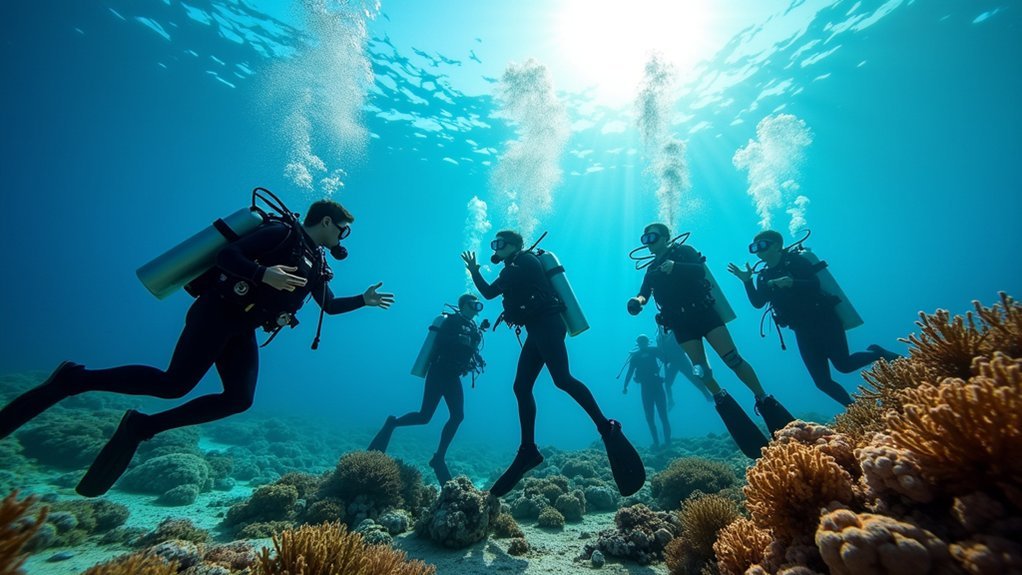
When considering certification options for disabled divers, the Handicapped Scuba Association (HSA) Multi-Level Certification System stands out as the gold standard.
This extensive system offers four distinct certification levels tailored to diverse abilities.
If you’re pursuing Level A certification, you’ll demonstrate complete mastery of scuba skills and emergency procedures, allowing you to dive with just one certified buddy.
Level B certification requires you to meet basic safety standards and pairs you with two Level A buddies.
For those needing more assistance, Level C certification connects you with one Level A buddy plus a Rescue Diver or Assisting Buddy for enhanced support.
The HSA certification process prioritizes your safety through the buddy system, ensuring all team members receive appropriate accommodation regardless of physical limitation.
Safety first: HSA’s buddy system accommodates all divers, ensuring proper support regardless of physical abilities.
You’ll find the perfect certification path matched to your abilities.
PADI Adaptive Techniques Certification Program
While the HSA program offers a structured certification system for disabled divers, PADI’s Adaptive Techniques Certification Program takes a different approach by focusing on training support divers.
The PADI Adaptive Support Diver Course equips you with essential skills to assist individuals with disabilities in the water.
If you’re a certified Open Water Diver or Freediver aged 15+, this certification teaches you specialized adaptive techniques to guarantee disabled divers enjoy safe, fulfilling underwater experiences.
You’ll learn to modify equipment and approaches while maintaining strict safety standards throughout each dive.
PADI recommends completing an Emergency First Response course within 24 months before enrollment to enhance your preparedness.
This training promotes inclusivity within the diving community by empowering you to create a supportive diving environment where participants of all abilities can thrive.
Therapeutic Benefits and Research-Backed Approaches to Adaptive Diving
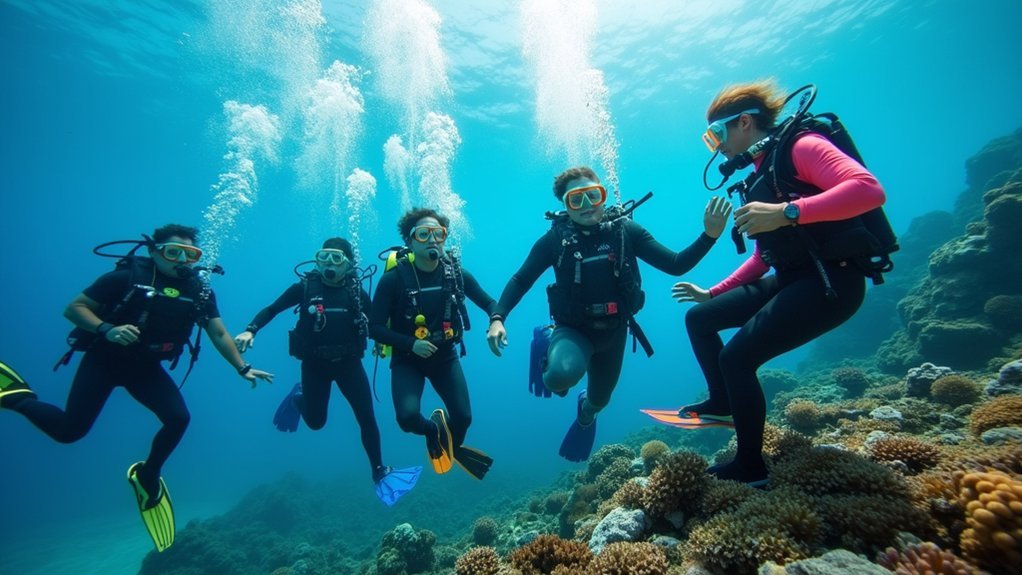
Beyond specialized training programs, adaptive diving offers profound therapeutic advantages supported by scientific research.
Johns Hopkins researchers found significant improvements in muscle movement and sensitivity among veterans with spinal cord injuries following scuba certification courses. You’ll likely experience reduced PTSD symptoms, as diving’s immersive underwater environment creates unique therapeutic benefits for mental health.
Research confirms adaptive diving offers dual healing: physical rehabilitation for injury and psychological relief from trauma through underwater immersion.
Adaptive diving programs excel by modifying traditional techniques to meet your specific disabilities while maintaining safety standards.
The combination of physical activity, personalized training, and social interaction creates a holistic approach to rehabilitation. You’ll join a community connection that many participants find transformative.
When you pursue scuba certification through these research-backed programs, you’re not just learning a new skill—you’re accessing a therapeutic modality that addresses both physical limitations and psychological well-being.
Frequently Asked Questions
What Is the 120 Rule in Scuba Diving?
The 120 rule limits you to a maximum depth of 120 feet (36 meters) during recreational dives. You shouldn’t exceed this depth unless you’ve completed specialized training for deeper diving beyond your basic certification.
Which Is Better, SSI or PADI?
Neither SSI nor PADI is objectively “better” – they’re both reputable organizations. Your choice depends on your learning style preferences, local instructor availability, and specific course offerings that match your personal needs.
Can You Scuba Dive With EDS?
Yes, you can scuba dive with EDS. You’ll need a physical exam first to guarantee safety. The HSA offers adaptive programs with special certification levels, modified techniques, and buddy support for your specific needs.
Is It Better to Be PADI or Naui Certified?
Both PADI and NAUI offer excellent certifications. Your choice depends on your preferences – PADI provides wider global recognition, while NAUI’s thorough training approach focuses on extensive skills. Either will equip you with quality diving credentials.
In Summary
You’ve got options! Whether you choose HSA’s multi-level system, PADI’s adaptive techniques, or a therapeutic approach to diving, you’re not limited by disability. These certification paths provide the training, support, and adaptations you’ll need to explore underwater worlds safely. Don’t let physical challenges keep you from experiencing the freedom of scuba—the ocean is waiting for you to discover its wonders.

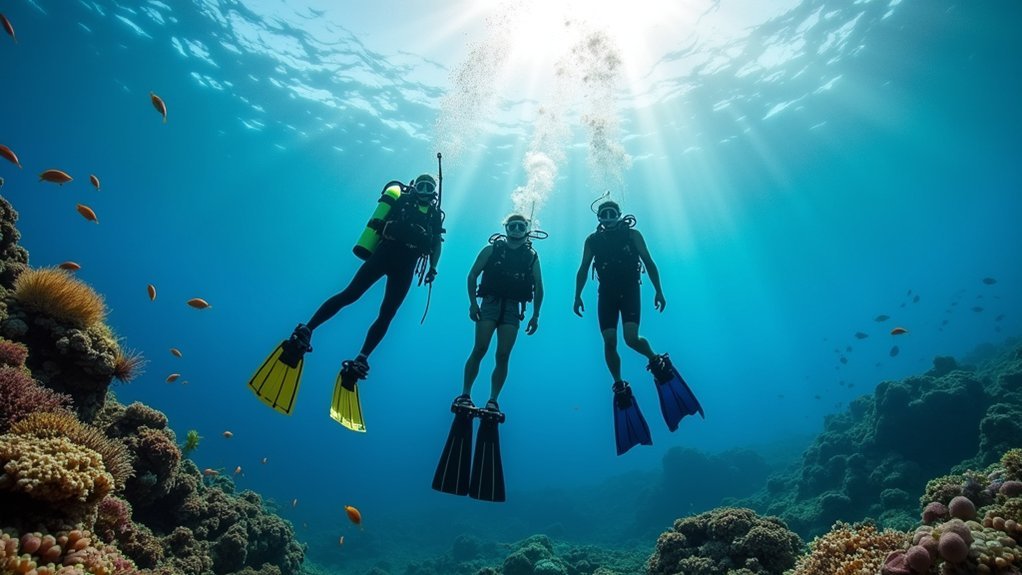
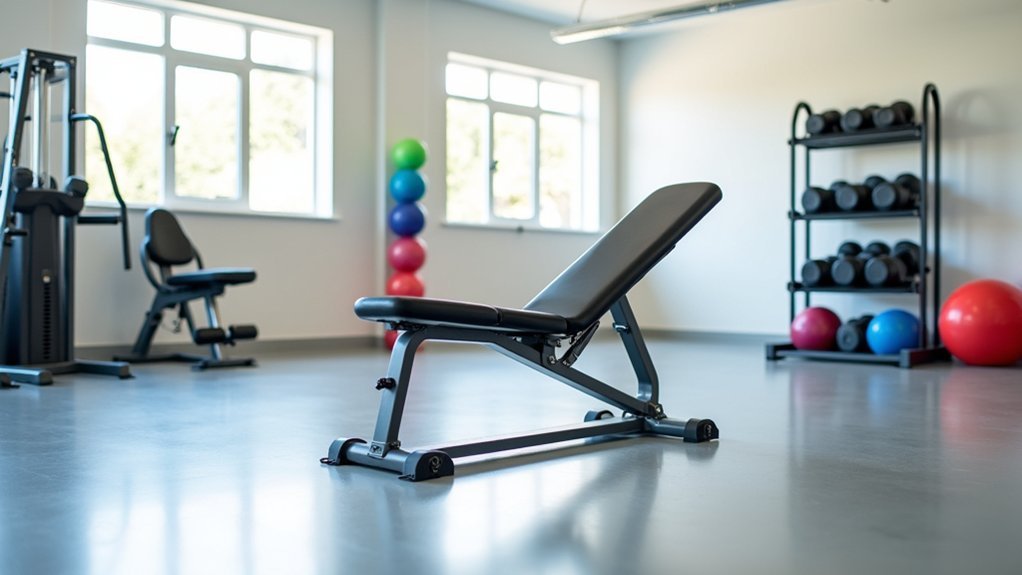
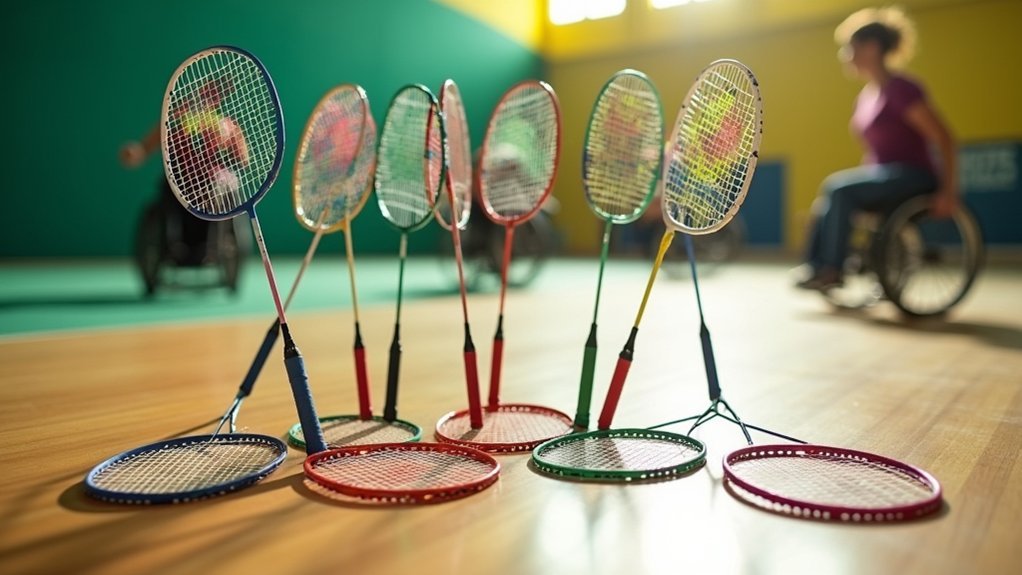
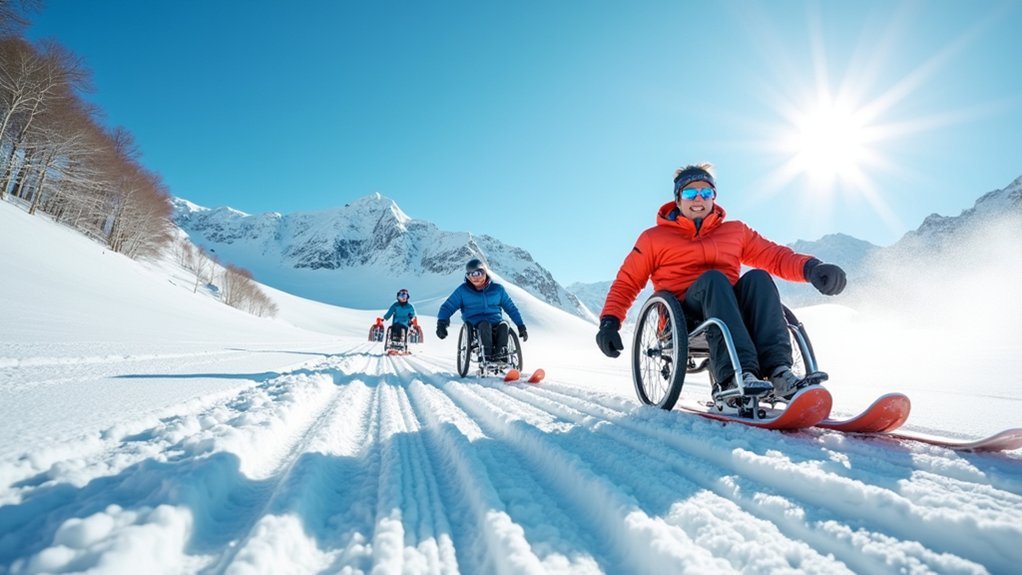
Leave a Reply